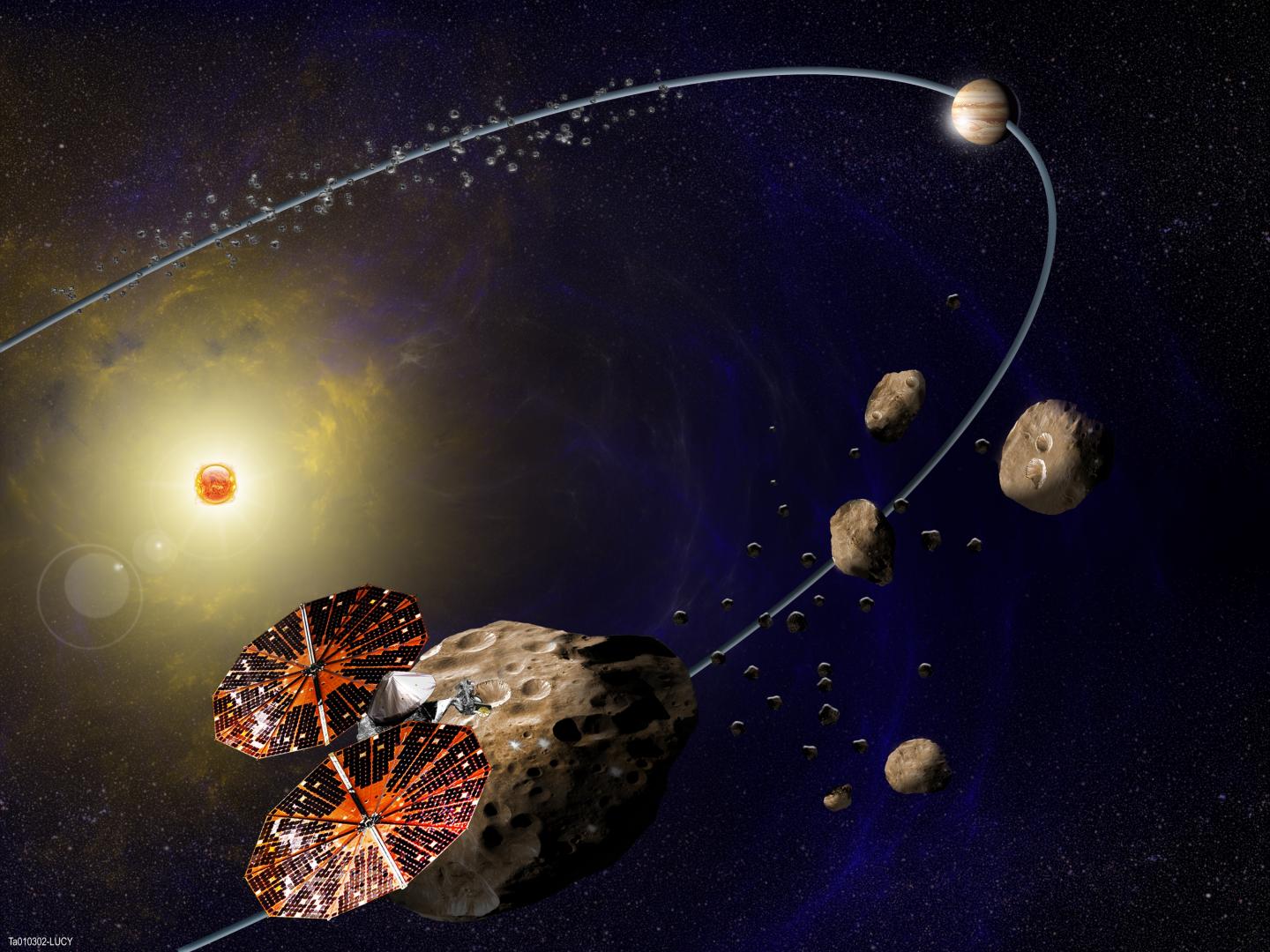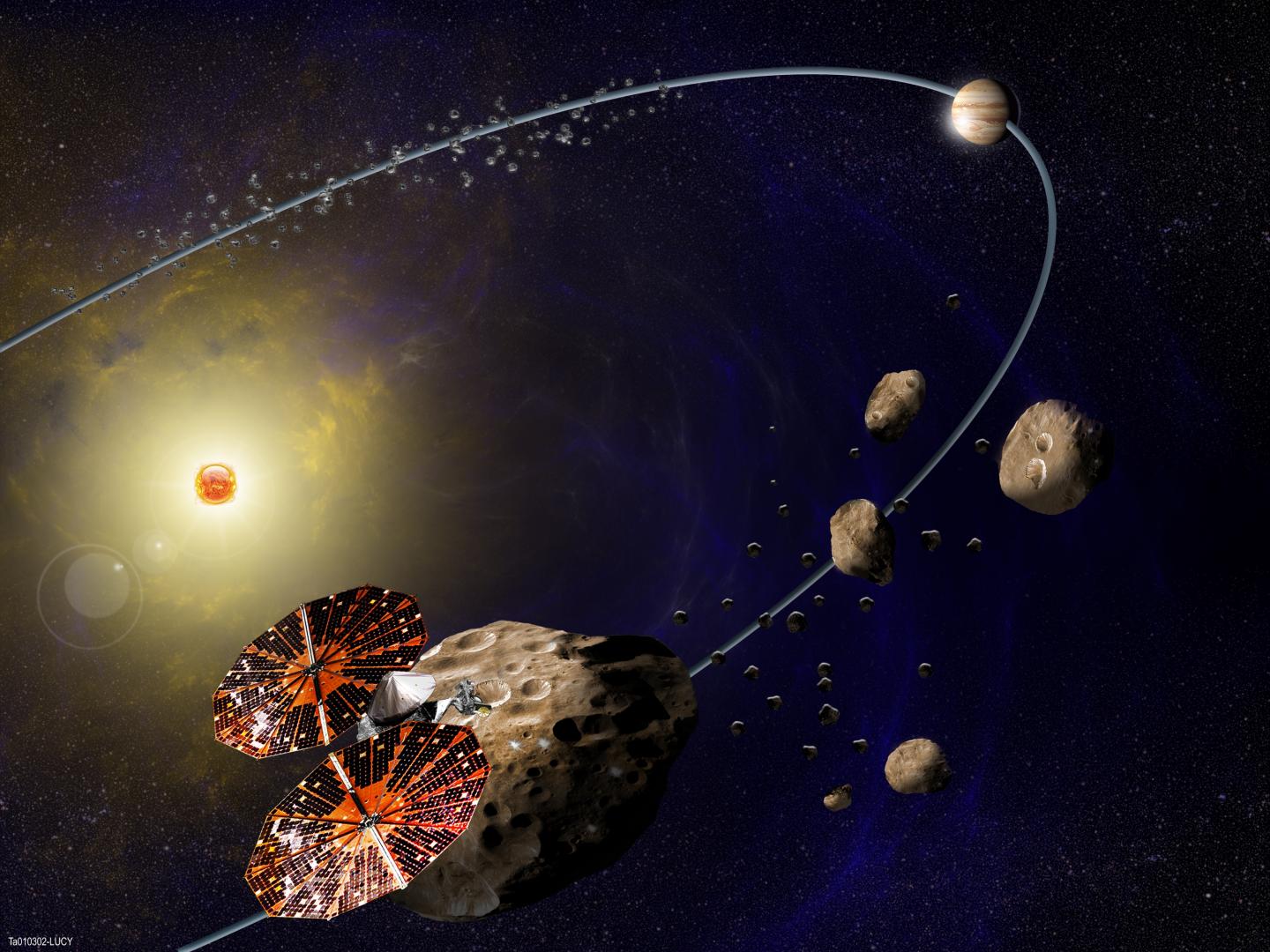
Credit: SwRI
Boulder, Colo. — January 4, 2017 — NASA has selected Southwest Research Institute (SwRI) to lead Lucy, a landmark Discovery mission to perform the first reconnaissance of the Trojans, a population of primitive asteroids orbiting in tandem with Jupiter. The Lucy spacecraft will launch in 2021 to study six of these exciting worlds.
"This is a unique opportunity," said Dr. Harold F. Levison, a program director and chief scientist in SwRI's Boulder office and the principal investigator of the mission. "Because the Trojans are remnants of the primordial material that formed the outer planets, they hold vital clues to deciphering the history of the solar system. Lucy, like the human fossil for which it is named, will revolutionize the understanding of our origins."
Lucy will use a proven Lockheed Martin spacecraft and remote-sensing instrument suite to study the geology, surface composition, and bulk physical properties of these bodies at close range. The payload includes three complementary imaging and mapping instruments, including a color imaging and infrared mapping spectrometer from NASA's Goddard Space Flight Center (GSFC), a high-resolution visible imager from the Johns Hopkins University Applied Physics Laboratory, and a thermal infrared spectrometer from Arizona State University. In addition, Lucy will perform radio science investigations using its telecommunications system to determine the masses and densities of the Trojan targets.
"One of the most puzzling characteristics of the Trojans is that they are very different from one another," said Levison. "This diversity was caused by the evolution of the outer planets and, as such, can be used to detangle their history." To realize the full scientific potential of the Trojans requires studying all types.
"Understanding the causes of the differences between the Trojans will provide unique and critical knowledge of planetary origins, the source of volatiles and organics on the terrestrial planets, and the evolution of the planetary system as a whole," said Dr. Catherine Olkin, a planetary scientist in SwRI's Space Science and Engineering Division and the mission's deputy principal investigator.
"The Lucy mission is one of those rare moments where a single mission can have a major impact on our understanding of such fundamental questions," added Dr. Keith Noll, chief of the GSFC Planetary Systems Laboratory and a project scientist for the mission.
Lucy will launch in October 2021 and fly by its targets between 2025 and 2033. In all, Lucy will study six Trojans and one main belt asteroid. SwRI is the principal investigator institution and will lead the science investigation. GSFC will provide overall mission management, systems engineering, and safety and mission assurance. Lockheed Martin Space Systems of Denver will build the spacecraft.
###
Editors: Image to accompany this story: http://www.swri.org/press/2017/nasa-lucy-mission-jupiter-trojan.htm
Media Contact
Deb Schmid
[email protected]
210-522-2254
@swri
http://www.swri.org
############
Story Source: Materials provided by Scienmag





